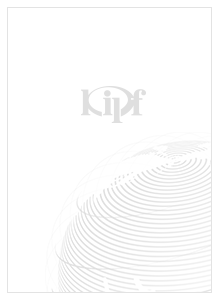상세 내용
This study examines flows and paths of the government expenditures in the field of culture and arts. A proportion of the government expenditures spent through NPO (non-profit organization) has been increasing over time in most countries including Korea. The government expenditures are distributed to NPO in the form of the government grant. NPOs in Korea spent almost 17.2% of total government grants in the field of culture and arts in 2010.The case studies on NPOs in the field of culture and arts were performed to find out any problems related to the government grants. We found that the goal of government spending policy needs to be more clear and action plans also need to be designed for the goal to improve the efficiency of government spendings. We performed an efficiency analysis on the expenditures spent through NPOs. For this analysis we used the survey data derived by the survey for “Arts Council Korea" and for consumers of arts services performed by NPOs. Our analysis pointed out some problems need to be corrected to derive more objective and trustable survey results. It is recommeded, for exemple, that the survey for “Arts Council Korea" should be performed not only for NPOs which are successful in getting the government grants, but also for NPOs which are not successful. More recommendations were made on designing questions of the surveys.The DEA (Data Envelope Analysis) was also done to examine the relative efficiency of NPOs. We could find interesting results regarding quantitative and relative efficiency of NPOs within the same genre of arts. It is also recommended that NPOs need to be obliged to provide the same information regarding their services and financial statement to accumulate more objective data for further analysis.

